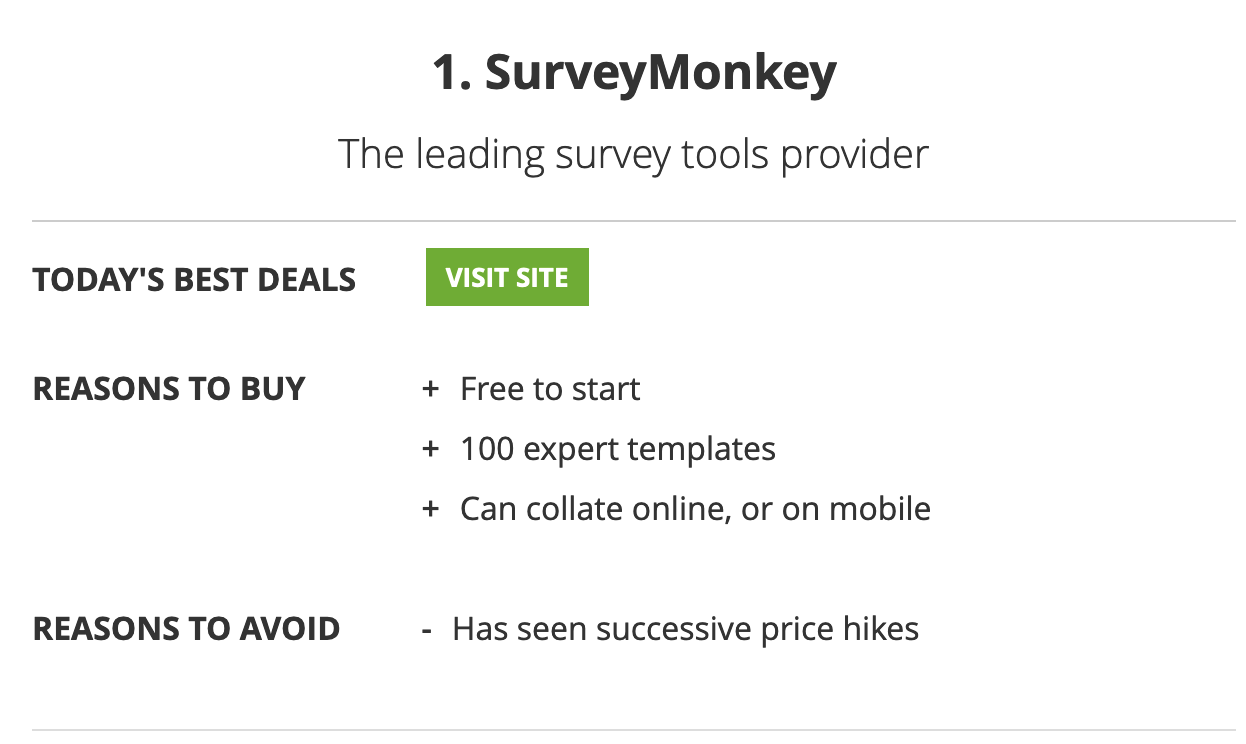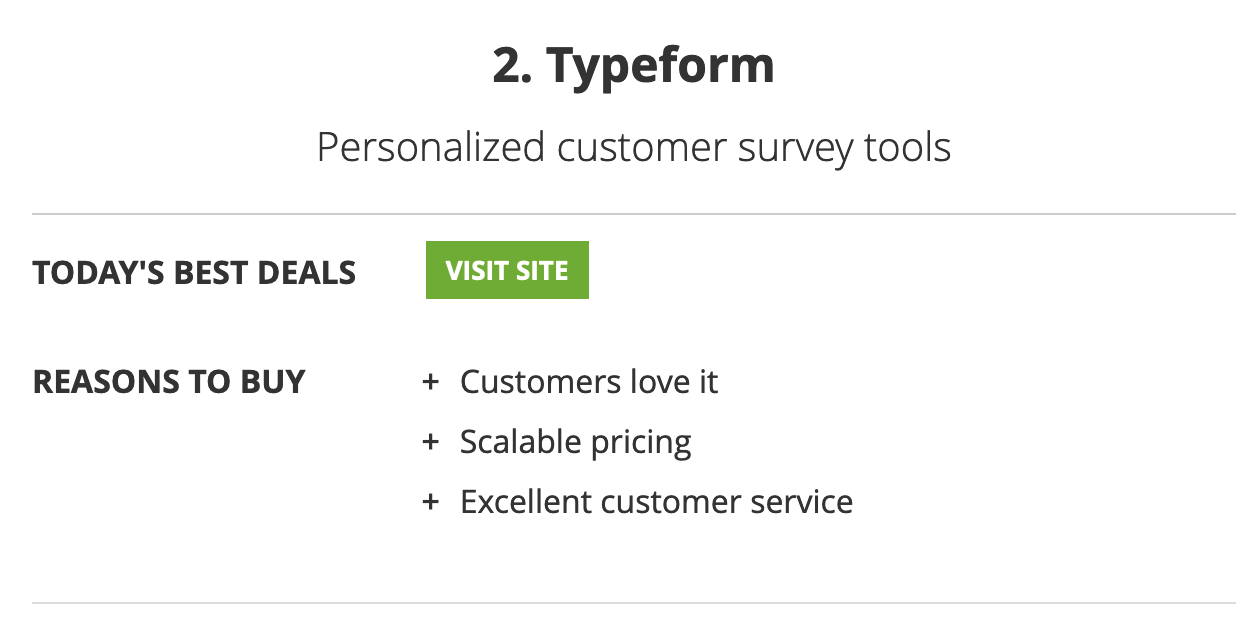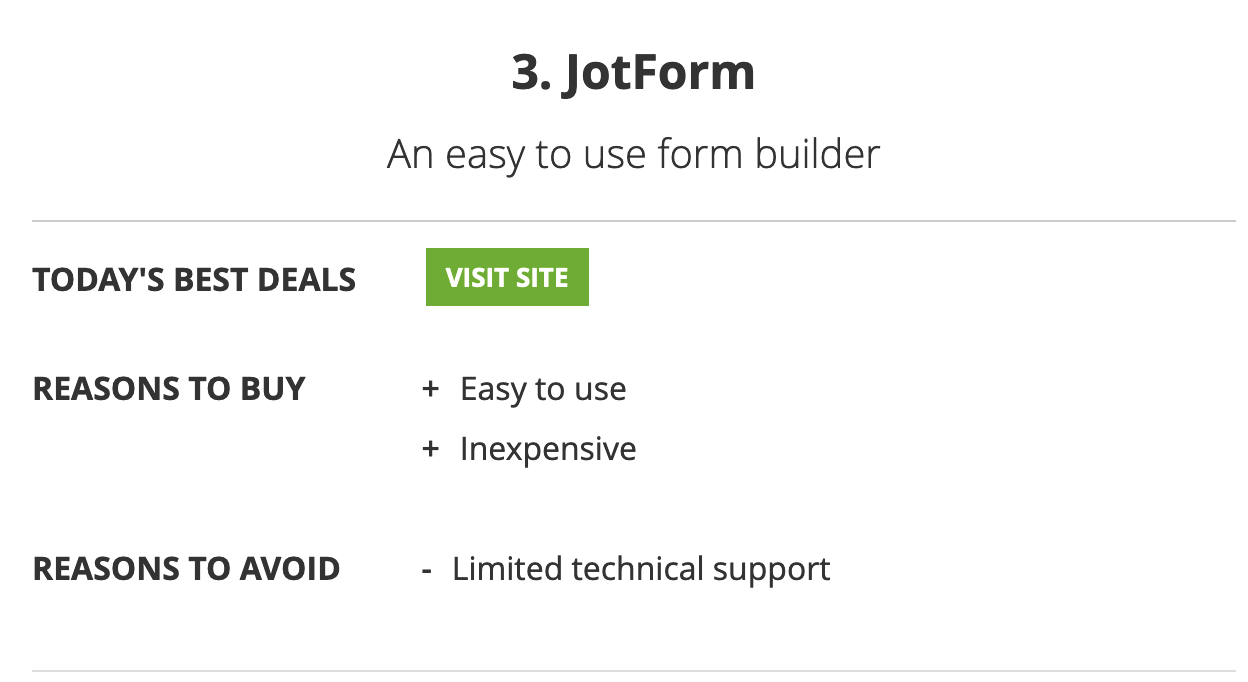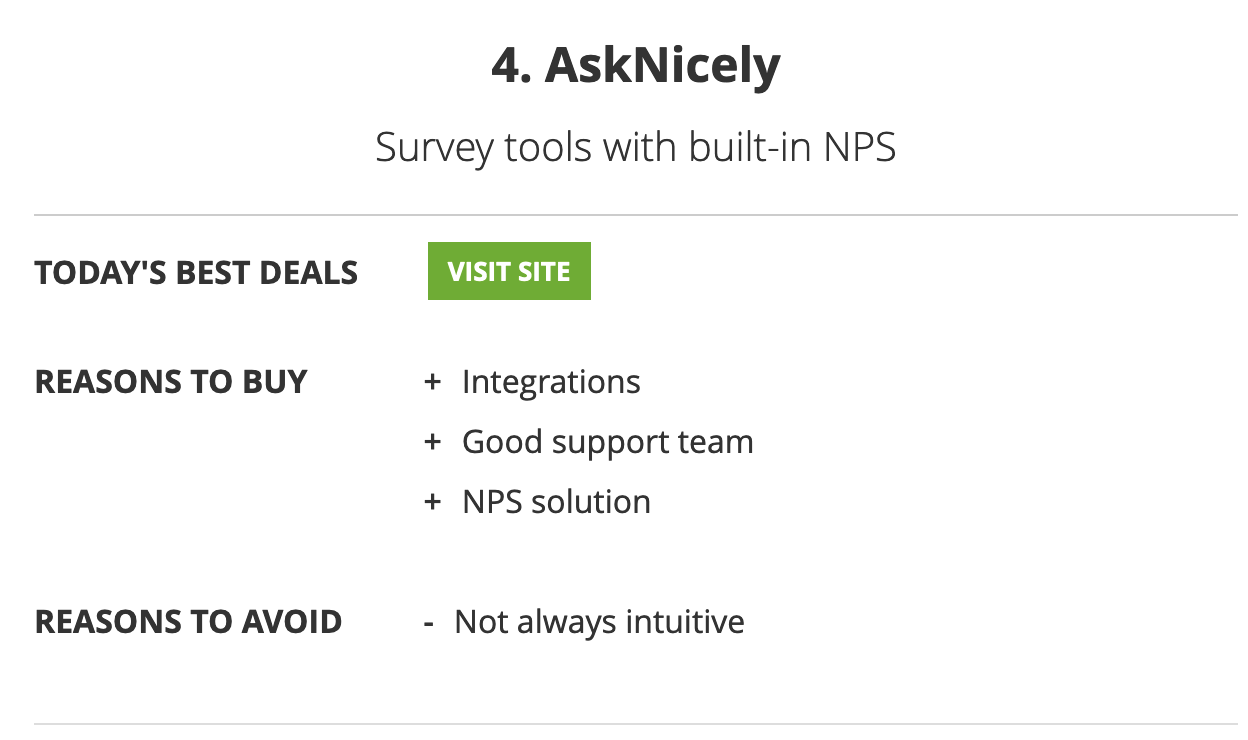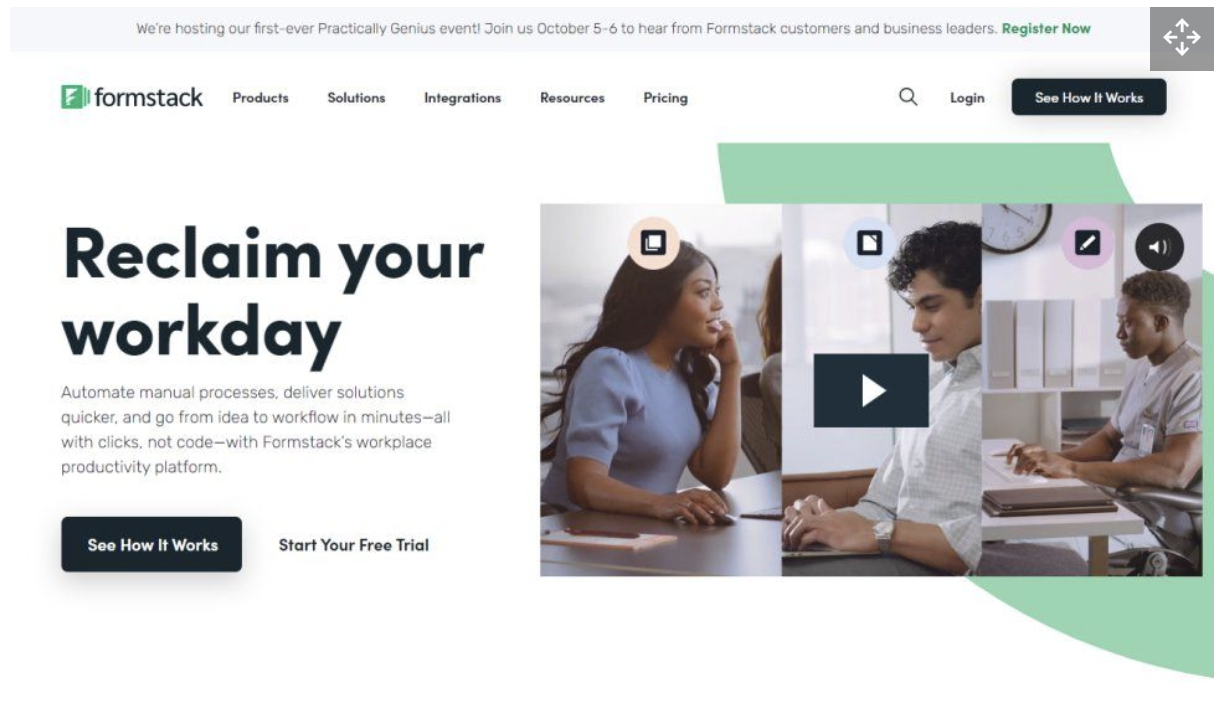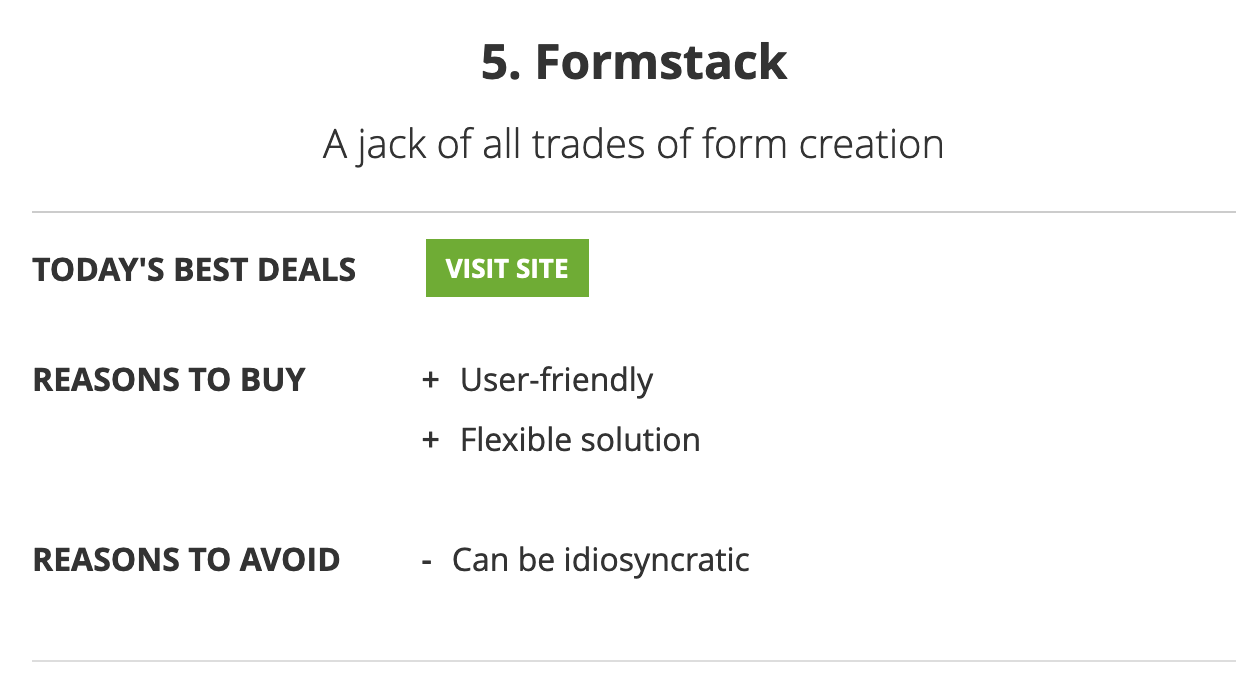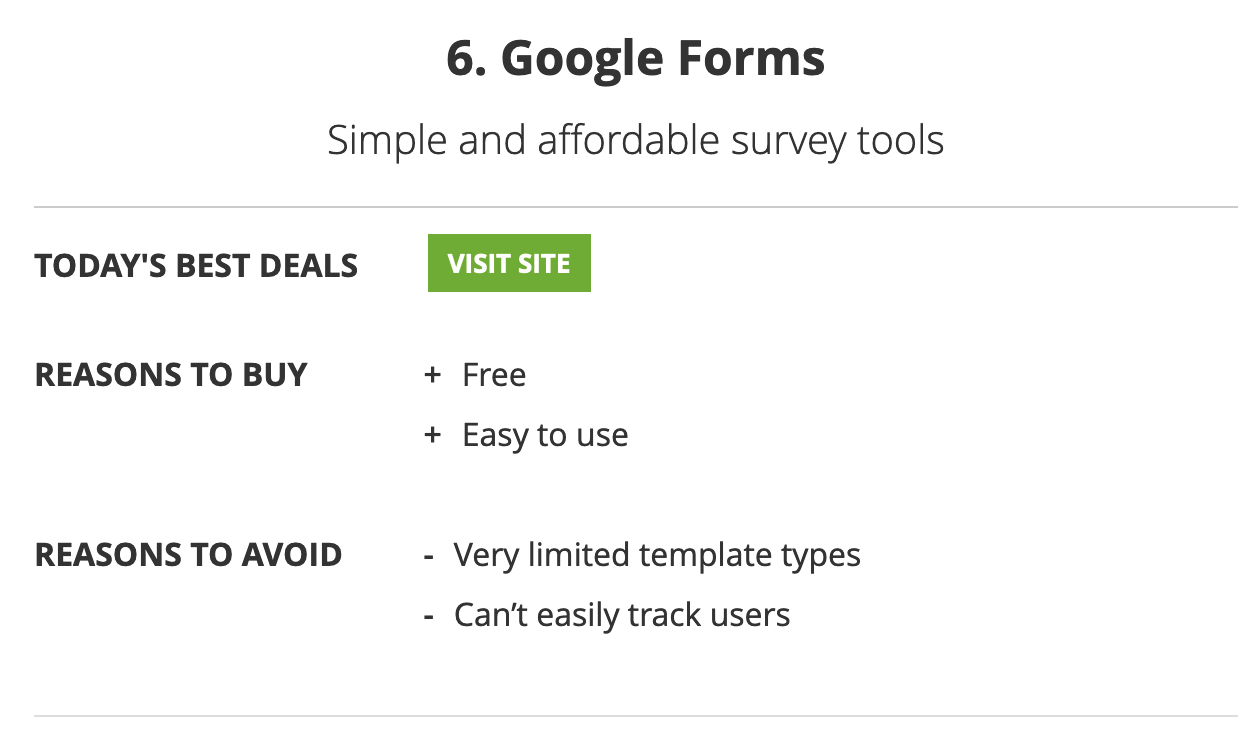by Mark Pickavance, Brian Turner
Improve your customer research
The best survey tools make it simple and easy to collect feedback from customers in order to manage business insights.
There are always ways to improve business products or services, but knowing which ways would best please customers can be difficult to know. Choices that may seem intuitive within the business can seem alien and off-putting outside of it.
Additionally, while it’s easy to imagine that customers want the lowest price over every over consideration, more likely they will pay more for a better experience – a key mantra of Apple.
There may also be better ways in which to handle customers, or learn further interests to potentially cross-sell into. All of which is moot if you don’t have a way to properly gauge and measure what customers want.
Forms and survey tools are one way in which to do this, and while some CRM software may have feedback options built into them, they aren’t always configurable or contain bias that makes it difficult for a customer to provide the feedback they want to give. Similar applies with simple email questionnaires.
Forms allow you to better configure and analyze responses, without having to make the experience so complicated as to put off users giving their feedback.
Here then are the best survey tools, to allow you to reach out to your customers and improve your understanding not just of what they want, but how to deliver a better business experience to them.
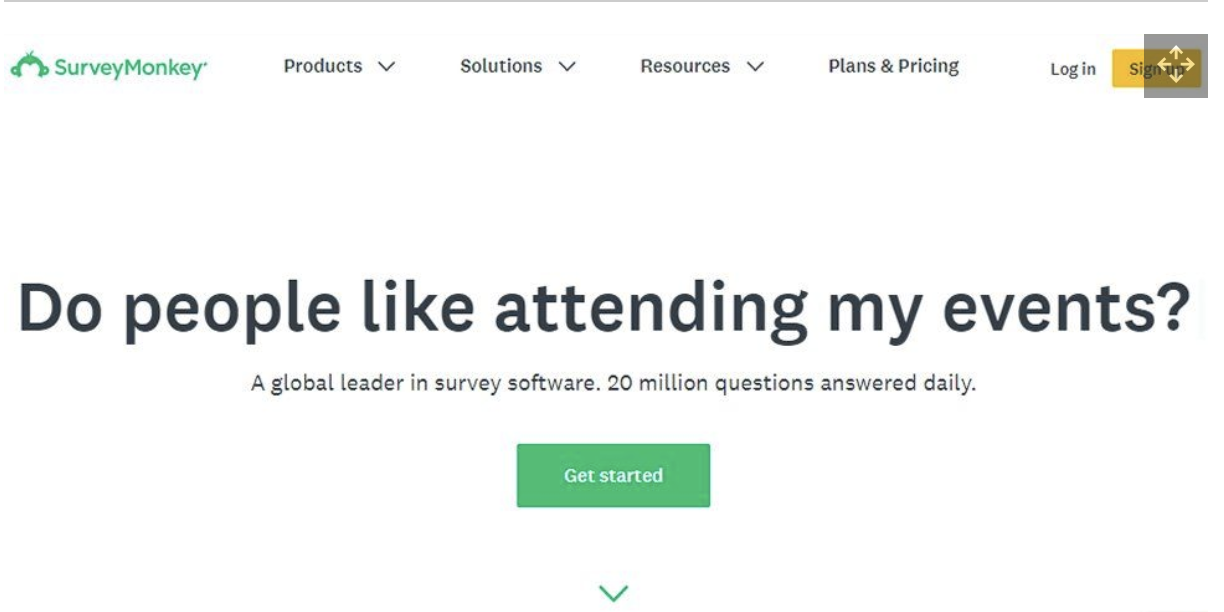
One of the most successful survey solutions around with over 40 million registered customers, SurveyMonkey offers a comprehensive questionnaire building solution and metric analysis tools.
It allows those without any coding skills to create complex question sets and then process the responses easily and efficiently.
You can sign up for free and create a survey within minutes. However, you can’t access the data collected in CSV or Excel XLS until you’ve signed up for a paid option. And the price goes up more if you expect more than 1000 responses per month or want to use any of the sophisticated branching and pipeline features.
A number of pricing tiers are available, with Team Advantage being the cheapest. This allows control over survey sharing, team analysis, shared asset library, custom graphics, as well as easy data exporting.
The next tier, Team Premier, adds features such as benchmarks, industry tools, and multilingual surveys. The Enterprise plan offers extra security and compliance features, as well as admin management and migration as required.
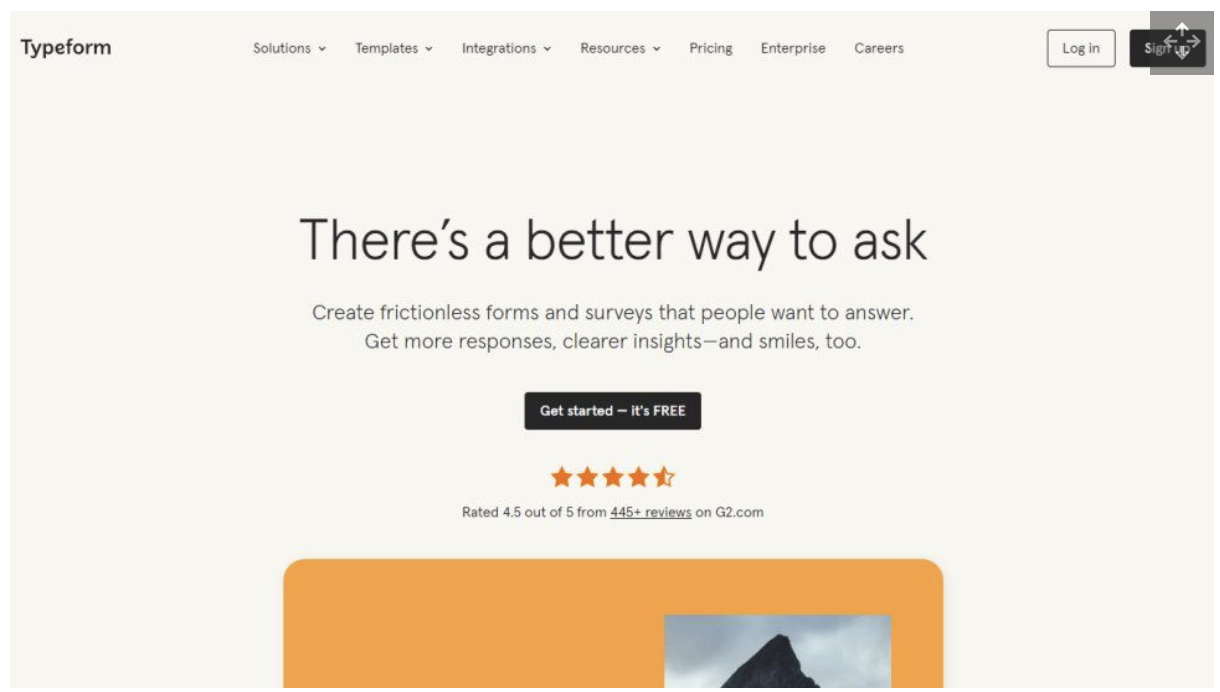
Where other survey tools focus on how complicated a questionnaire can be, or how much data you can extract, Typeform takes a wholly different approach.
Its focus is user interaction, believing that the way to get the best responses is to engage the end user and through that get better responses. The Typeform methodology appears to work well, getting on average four times the completion rate over what the industry considers standard.
Service begins with the Essentials package, which offers a basic range of features. Upgrade to the Professional plan and not only do you get up to 5,000 responses but also unlimited logic jumps as well as conversion tracking and HubSpot integration. However, if paid yearly the Professional plan is discounted.
Each of these is restricted to a single user, though Enterprise deals are available.
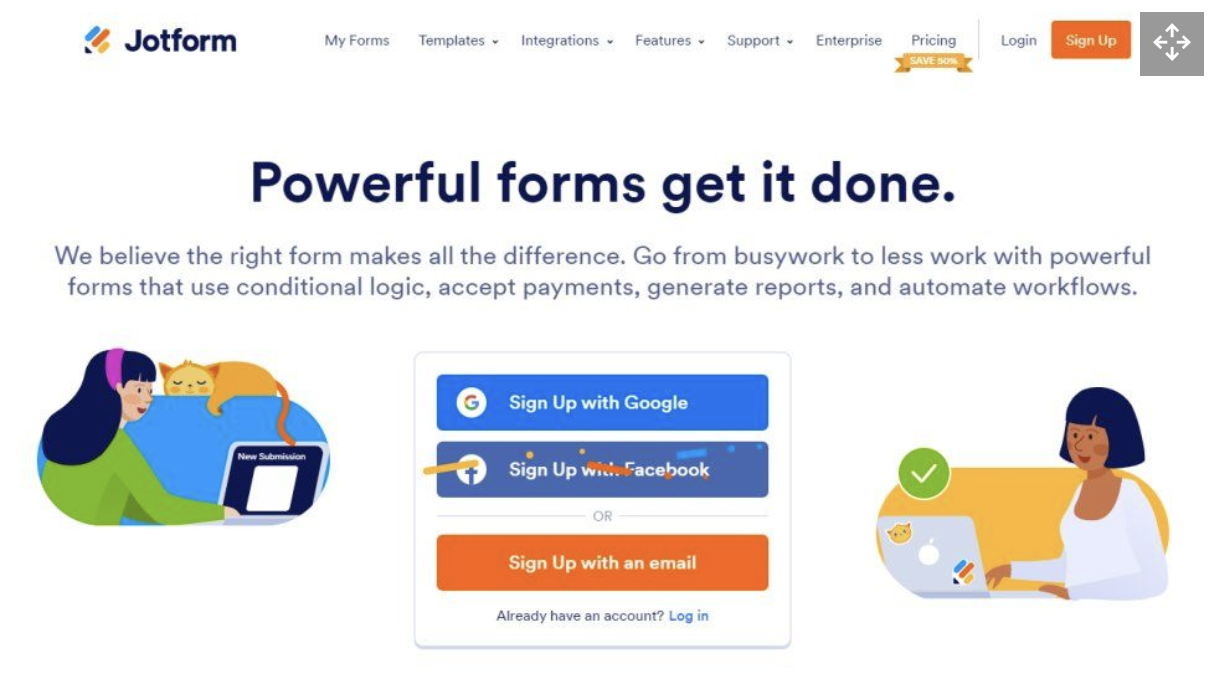
JotForm is an online web and email survey building solution that aims to undercut Typeform while being even easier to use.
A coding-free solution that most marketing people should be able to master quickly and generate the leads or feedback that they need.
In the past 12 years, JotForm has built a customer base of 2 million regular customers, creating forms in 177 countries and 12 languages.
A Start plan is free to use, and offers up to 100 submissions, 100MB of online storage, as well as 5 forms and 1,000 form views. Paid plans – when paid yearly – start with the Bronze and increases monthly submissions to 1,000, and as well as storage space to 10GB, as well as 25 forms and 10,000 views.
The Silver plan introduces HPIAA compliance as well as increasing views to 10,000, storage to 100GB, up to 100 forms, and unlimited views. The Gold plan increases submissions to 100,000, 1TB of storage, and unlimited forms and views.
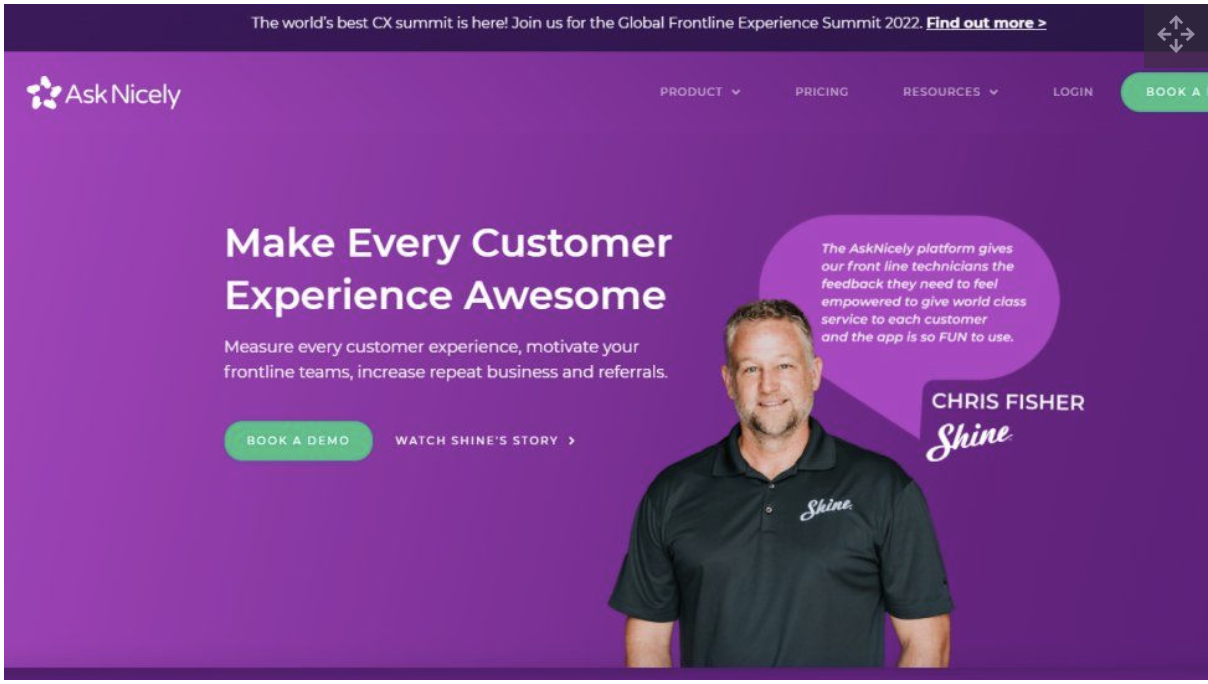
AskNicely’s unique selling point is that it can collect live information based on the Net Promoter Score (NPS). NPS is an excellent way to gauge the strength of customer relationships for a business, and this tool was designed to track that dynamic.
It also integrates with many customer workflow options that include Salesforce, Hubspot, Slack, Zendesk, MailChimp and Zapier amongst many others.
With these connections, surveys can target specific customer groups, and their reaction to new products and services can be collected to present real-time to live dashboards.
AskNicely used to advertise plans which were expensive but packed with features – however, the website no longer displays pricing information and instead asks for potential customers to contact them directly for a quote.
Formstack is a good example of a survey product with a very wide remit. The online form tool allows the creation of sophisticated surveys and their responses to be data harvested. But it can also be used for straightforward customer feedback panels on websites and social media.
Many companies use it to process leads and analyze their rate of conversion by integrating it into other sales management solutions. It works with MailChimp to enable targeted information gathering and feedback from existing customer databases.
As a survey tool, it works well enough, though it doesn’t have the templates that some competitor products offer.
Costing has four levels; Bronze, Silver, Gold and Platinum. The Bronze package offers a single user solution with basic forms and no application integration. At the other end of this scale, the Platinum plan has a ten user license with the scope for 1,000 forms and 100,000 submissions per month.
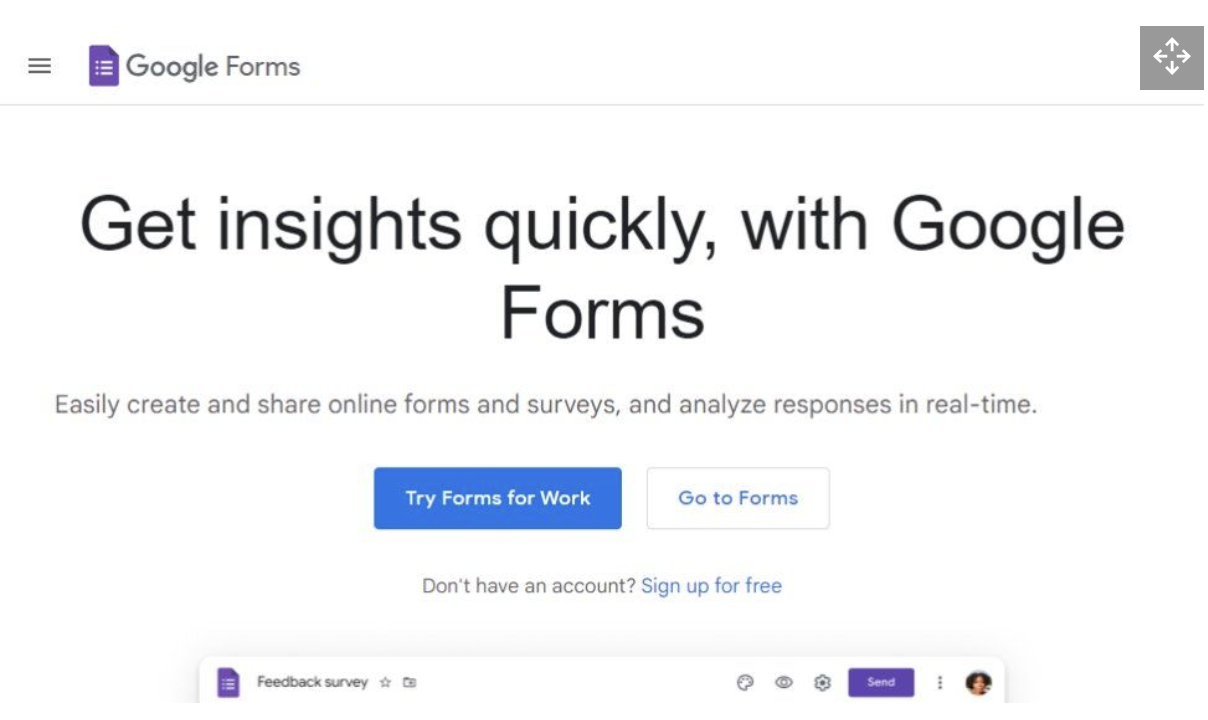
Many business people don’t need anything exotic or complicated. Maybe a simple form to ask their customers if they enjoyed the last seminar and how to make it better is sufficient.
For them, the free to use Google Forms is a perfectly adequate tool that requires little skill or experience to use, and is available for free as a personal edition or as part of the G Suite for business platform.
Responses are stored automatically into Google Sheets, allowing them to be easily transferred to an Excel spreadsheet or a database later.
The key weakness of Google Forms is that unless recipients have a Google Account and are willing to log in with it, they can fill out a survey multiple times.
As it is free before you spend big, it might be worth seeing if it will do enough, or at least hint what bought product features you might want.
Choosing an online survey platform
A major difference between traditional market research platforms and the latest generation of online surveys is the amount of information they can extract from open-ended questions and unstructured language data. Such data is critical for capturing the kinds of free-flowing thoughts from the respondent that yield the most relevant customer insights. Online surveys that use artificial intelligence (AI) and natural language processing (NLP) have streamlined delivery of these kinds of high-value insights and make them available immediately, without any post-processing or further data manipulation.
Historically, to hear the voice of customer at scale, researchers have asked closed-ended multiple-choice questions in surveys rather than open-ended ones. The former is easier to tabulate than having to read and organize free-text answers, but it dramatically reduces the depth of the resulting data. As an example, a streaming music service wanted to understand consumer behavior but could only glean minimal information by using traditional close-ended survey approach. Only when the company converted the survey to open-ended questions about why respondents listened to music could it start describing their customers in more meaningful behavioral and attitudinal terms ranging from the deeply spiritual (“I connect with God through music”) to the practical and behavioral (“Music allows me to focus while I’m working”).
Without AI technology, projects like this music survey with 10,000 participants might require days of manual data review, cleaning and organizing and still come up short on insights. In contrast, the next generation online surveys use AI and NLP to automatically perform a first-pass clean-up of text answers, in real time. Some platforms even use respondents’ collective intelligence to further validate and classify language data by interacting with it while it is being collected. Within a few minutes, researchers have a treasure trove of unfiltered and organic sentiments in respondents’ own voice, and in real-time.
An important added benefit of such a gamified interactive process is that respondents enjoy it more. More engaged and attentive respondents in turn result in higher-quality responses. Furthermore, the statistically validated qualitative data can be used in quantitative models, such as net promoter score (NPS), segmentation, or pricing studies, where natural text data can now become categorical variables in quantitative models.
The combination of AI and NLP technologies that smartly integrate into online surveys is making lasting inroads into the traditional market research toolkit. They are moving the insights industry toward free-flowing natural conversations with respondents, at speed and at scale. This is creating an opportunity for researchers to integrate unstructured customer data more directly into insights and statistical models that support them.
Source: techradar.com
Click here for original article and to read full software reviews.

